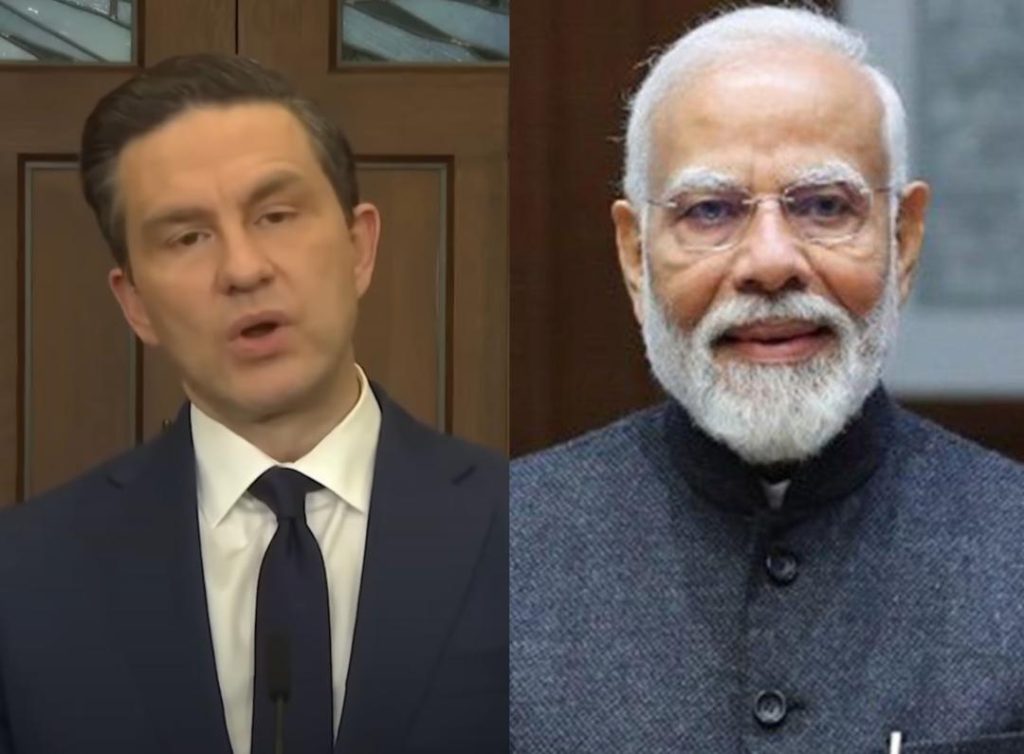
We Need to Work with India: Canada Leader on G7 Invite for PM Modi
The recent invitation to Prime Minister Narendra Modi to attend the G7 summit has sparked a mix of reactions from various quarters. While some have hailed the move as a significant diplomatic breakthrough, others have expressed skepticism about India’s inclusion in the elite group. Amidst the controversy, Canada’s Opposition leader, Pierre Poilievre, has come out in support of the invitation, emphasizing the importance of strengthening ties with India.
In a recent statement, Poilievre welcomed the invitation, stating that “the invitation is necessary.” He pointed out that India has been a regular participant in the G7 conferences over the past six years, making it one of the biggest and fastest-growing economies in the world. The Canadian leader acknowledged that India’s inclusion in the G7 would not only bring new perspectives to the table but also provide opportunities for cooperation on various fronts.
Poilievre’s comments reflect a growing acknowledgment of India’s rising global influence and its potential to be a key player in shaping the international agenda. With a population of over 1.3 billion people and a rapidly growing economy, India has emerged as a significant market for Canadian businesses. The country’s resource sector, in particular, stands to benefit from increased trade and investment ties with India.
As the world’s second-largest democracy, India has been a key partner for Canada in various areas, including trade, security, and climate change. The two countries have a long history of cooperation, dating back to the 1970s when Canada was one of the first Western nations to establish diplomatic relations with India. Over the years, Canada has provided significant support to India’s development efforts, including through the provision of technical assistance and funding for various projects.
Poilievre’s emphasis on the need to “sell” Canadian resource projects to India is a reflection of the significant economic potential that lies untapped in the India-Canada relationship. With India’s growing demand for energy and natural resources, there are enormous opportunities for Canadian companies to export their expertise and services to the country. At the same time, India’s own resource sector is facing significant challenges, including the need for modernization and diversification. Canadian companies could play a key role in helping India overcome these challenges and achieve its development goals.
In addition to economic cooperation, Poilievre also highlighted the importance of working with India on security issues. The two countries have a shared interest in combating terrorism and promoting regional stability, particularly in the Indo-Pacific region. Canada and India have been working closely together on various security initiatives, including the India-Canada Counter-Terrorism Dialogue and the Indo-Pacific Strategy.
The G7 invitation to PM Modi also provides an opportunity for Canada to strengthen its ties with India on climate change and sustainable development. As two of the world’s largest economies, Canada and India have a significant role to play in shaping the global response to climate change and achieving the Sustainable Development Goals (SDGs). The two countries have already been working together on various climate-related initiatives, including the India-Canada Clean Energy and Climate Change Partnership.
In conclusion, Poilievre’s comments on the G7 invitation to PM Modi reflect a growing recognition of the importance of Canada-India relations in today’s global landscape. The two countries have a long history of cooperation and share common interests in areas such as trade, security, and climate change. As Canada looks to strengthen its ties with India, it is clear that there are enormous opportunities for cooperation and mutual benefit.
News Source: https://www.youtube.com/watch






